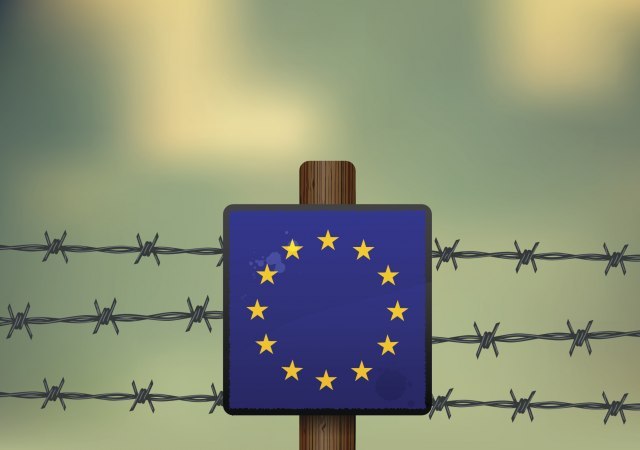Reactions to "migrant centers in Serbia" and Frontex arrival
The alleged agreement between Serbia and the EU on the deployment of Frontex was commented on Monday by the MUP, the PM, and the EU Delegation to Serbia.
Tuesday, 18.09.2018.
15:42

Reactions to "migrant centers in Serbia" and Frontex arrival
Stating that there is a procedure whereby this type of agreement is first to be initialed and then signed, Lazarov recalled that, should such an agreement be signed, it would have to be ratified in the Serbian Assembly under a binding procedure, without which it could not come into force."It is necessary to remind that if representatives of Frontex were to be placed on our borders, their role would be to protect the state borders from migrants, exclusively in cooperation with the Serbian police," Lazarov said, according to the MUP.
Lazarov also recalled that Interior Minister Nebojsa Stefanovic "repeatedly said that Serbia will not become any kind of zone for the accommodation of migrants and that this is a clear position of Serbia."
"I believe that we should not even remind domestic and inernational public that Serbia always treats migrants and acts in accordance with all international rules and humane principles," Lazarov said.
This reaction comes after Germany's Deutsche Welle broadcaster in the Serbian language reported earlier that the European Union intends to significantly strengthen the border security service Frontex, and, as part of its migration policy, "engage it in the Western Balkans, including in Serbia."
The head of the EU Delegation to Serbia, Sem Fabrizi, said that Dimitris Avramopoulos, EU's migration, home affairs, and citizenship commissioner, would soon visit Serbia, adding that he assumes that a status agreement regarding Frontex would be signed with Serbia then.
Fabrizi told reporters in Belgrade that the European Union has signed such an agreement with other countries in the region, based on which the EU will cooperate with Serbia on migration issues.
He added that this would be "a comprehensive agreement on how Frontex will work with colleagues from Serbia."
Asked if this meant that Frontex in Serbia would protect the EU's borders from migrants, Fabrizi said he "would not associate this agreement with such stories" - and asked reporters "to wait for the commissioner to explain the details of the agreement."
Serbian Prime Minister Ana Brnabic, meanwhile, invited journalists "not to spread the gossip" and said that there was "never any talk about opening some migrant centers, because of which Frontex would defend the borders of the EU in Serbia."
She added that Serbia is "n a specific situation because migrants come to it from the EU, to then go to other EU countries."
Minister for European Integration Jadranka Joksimovic said that the MUP has been negotiating the Frontex agreement for some time.
Joksimovic said that Serbia is cooperating with Frontex regarding visa-free regimes that Serbia has with non-EU countries, adding that Serbia and Frontex have a joint team at the airport in Belgrade.
European Commission President Jean-Claude Juncker outlined a plan to strengthen the agency, which should have 10,000 instead of 1,500 officers by 2020.
According to Deutsche Welle, members of Frontex should be placed on interstate borders in Europe to assist with patrols and document controls. Frontex will operate in the territory of "third countries", which means in the Western Balkans, which is a part of the Balkan (migrant) route.
According to the new plan, Frontex units would be equipped with airplanes, ships, and weapons.
In practice, according to the German broadcaster, it would go like this: an EU member state, which awaits the arrival of a large number of refugees, seeks the help of Frontex, which would then be able to take over the complete asylum procedure, "while the final decision remains within the jurisdiction of sovereign states."













































Komentari 0